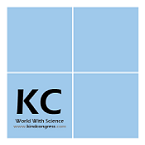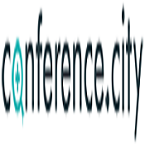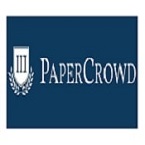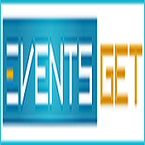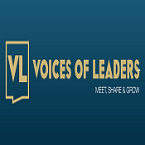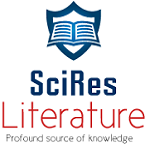sessions/Tracks
Track 1: Nanoparticles
Nanoparticles are particles between 1 and 100 Nano meters in size. In nanotechnology, a particle is defined as a small object that behaves as a whole unit with respect to its transport and properties. Particles are further classified according to diameter.The distinct characteristics of nanoparticles arise from quantum effects and the dominance of surface atoms. At the Nano scale, materials can exhibit enhanced catalytic activity, increased strength, altered electrical properties, and improved magnetic behaviors. For example, gold nanoparticles demonstrate different optical properties compared to bulk gold, resulting in unique color changes based on particle size and shape. This phenomenon, known as surface Plasmon resonance, is exploited in various sensing and imaging applications.
-
Nano particle volume, mass and concentration
-
Synthesis of tellurium Nano particles
-
Nanometers
-
Nano particle heterogeneity and interaction
-
Recent trends in nanotechnology
-
Nanoparticle characterization and applications
-
Gold nanoparticles and biosensors
Recommended: Nanotechnology Conferences 2024 | Advanced Nanotechnology Conferences | Nanomaterials Conferences 2024 | Nanoscience Conferences | Advanced Nano 2024 | Advanced Nanotechnology Conferences | Nanomaterials and Nanotechnology conferences 2024 | Nanomaterials conferences 2024 | Best Nanotechnology Podcasts 2024 | Nano Congress Events | Nanotechnology 2024 Live Events | Nano Congress 2024
Track 2: Applications of Nanotechnology
Nanotechnology is the study of manipulating matter on an atomic and molecular scale. Generally, nanotechnology deals with developing materials, devices, or other structures with at least one dimension sized from 1 to 100 nanometers. Nanotechnology entails the application of fields of science as diverse as surface science, organic chemistry, molecular biology, semiconductor physics, micro fabrication, etc. In the medical field, nanotechnology has led to significant advancements in diagnostics, drug delivery, and tissue engineering. Nanoparticles can be designed to deliver drugs precisely to targeted cells, improving the efficacy and reducing the side effects of treatments for conditions such as cancer. For instance, liposomes and dendrimers are used to encapsulate drugs, protecting them from degradation and ensuring their release at the desired site. Additionally, nanoscale biosensors and diagnostic tools enhance the detection of diseases at their earliest stages, allowing for timely intervention. Tissue engineering also benefits from nanotechnology through the development of scaffolds that promote cell growth and tissue regeneration.
-
Quantum effects
-
Nano medicine
-
Green nanotechnology
-
Potential applications of carbon Nanotubes
-
Nanotechnology in warfare
-
Industrial applications of nanotechnology
-
Nano electronics
-
Historical perspective
-
Fabrication of Nanoelectronics devices
Recommended: Nanotechnology Conferences 2024 | Advanced Nanotechnology Conferences | Nanomaterials Conferences 2024 | Nanoscience Conferences | Advanced Nano 2024 | Advanced Nanotechnology Conferences | Nanomaterials and Nanotechnology conferences 2024 | Nanomaterials conferences 2024 | Best Nanotechnology Podcasts 2024 | Nano Congress Events | Nanotechnology 2024 Live Events | Nano Congress 2024
Track 3: Nanoscience and Technology
Nanoscience is the study of atoms, molecules, and objects whose size is on the nanometer scale. Atoms are a few tenths of a nanometer in diameter and molecules are typically a few nanometers in size. Nano Science is a technology directed at the Nano scale. It is the uses and study related to very small things that can be used in all the other fields of science like biology, physics, chemistry, engineering and Materials sciences. Nanoscience and technology involve the study and manipulation of materials at the nanometer scale, typically between 1 and 100 nanometers. At this scale, materials exhibit unique physical, chemical, and biological properties that differ significantly from their bulk counterparts. These unique properties open up a wide range of applications across various fields, including medicine, electronics, energy, and environmental science. In the medical field, nanotechnology has revolutionized diagnostics, drug delivery, and therapeutic techniques. Nanoscale materials and devices, such as nanoparticles, nanorobots, and nanofibers, can be engineered to interact with biological systems at the molecular level. For instance, nanoparticles can be designed to target specific cells or tissues, enhancing the efficacy of drug delivery while minimizing side effects. Additionally, nanotechnology enables the development of advanced imaging techniques, such as quantum dots for fluorescent imaging and magnetic nanoparticles for MRI contrast enhancement, providing high-resolution visualization of biological processes.
-
Energy applications of nanotechnology.
-
Carbon Nanotubes.
-
Hotplate Technique for Nanomaterials
-
Nanobiotechnology
Recommended: Nanotechnology Conferences 2024 | Advanced Nanotechnology Conferences | Nanomaterials Conferences 2024 | Nanoscience Conferences | Advanced Nano 2024 | Advanced Nanotechnology Conferences | Nanomaterials and Nanotechnology conferences 2024 | Nanomaterials conferences 2024 | Best Nanotechnology Podcasts 2024 | Nano Congress Events | Nanotechnology 2024 Live Events | Nano Congress 2024
Track 4: Nanostructures
Nanostructures are structures that range between 1 nm (molecular scale) and 100 nm in at least one dimension. Most are synthetic and can be engineered to wide range of physical properties. Nano surfaces, cylindrical nanotubes, and Nano spheres are common nanostructures. Nanostructures have revolutionized the field of medicine through their applications in diagnostics, drug delivery, and tissue engineering. Nanoparticles can be engineered to target specific cells or tissues, making them ideal for delivering drugs directly to diseased areas, such as cancerous tumors, while minimizing side effects on healthy tissues. Quantum dots and gold nanoparticles are used in advanced imaging techniques to provide high-resolution images of biological processes at the molecular level. Additionally, nanostructured scaffolds are used in tissue engineering to support the growth and regeneration of damaged tissues and organs. In the electronics industry, nanostructures play a crucial role in the development of smaller, faster, and more efficient components. Nanowires, nanotubes, and graphene are utilized in the creation of transistors, sensors, and memory devices that surpass the performance limits of traditional materials. The integration of nanostructures into semiconductors enhances their electrical conductivity and thermal management, enabling the production of high-performance processors and memory chips. Moreover, quantum dots are being explored for use in quantum computing, promising unprecedented computational power and speed.
-
Nano structures in nature
-
Synthesis and analysis of nanostructures
-
Electrodeposit ion of nanostructure materials
-
Classes of nanostructured biomaterials
-
Types of nanostructured biomaterials
-
Biomedical applications and translational aspects of nanomaterials
Recommended: Nanotechnology Conferences 2024 | Advanced Nanotechnology Conferences | Nanomaterials Conferences 2024 | Nanoscience Conferences | Advanced Nano 2024 | Advanced Nanotechnology Conferences | Nanomaterials and Nanotechnology conferences 2024 | Nanomaterials conferences 2024 | Best Nanotechnology Podcasts 2024 | Nano Congress Events | Nanotechnology 2024 Live Events | Nano Congress 2024
Track 5: Nanoelectronics
Nanoelectronics holds few answers for how we might increase the capabilities of electronics devices when we reduce their weight and power consumption. Nano electronics and technology are widely used in all aspects of modern life. Life Safety, Healthcare, Transportation, Computing, Energy and Telecommunications are some of the major fields benefiting from the growth of Nano electronic applications. Nanoelectronics refers to the use of nanotechnology in electronic components. These devices are measured on the nanometer scale (one billionth of a meter) and can exhibit unique properties that differ from those of bulk materials. Nanoelectronics is a rapidly advancing field that promises significant improvements in performance, energy efficiency, and new functionalities for a wide range of electronic devices. One of the primary applications of nanoelectronics is in the realm of computing. Nanoelectronic components, such as transistors made from nanomaterials, can be significantly smaller and more efficient than traditional semiconductor devices. This miniaturization allows for the creation of microprocessors with billions of transistors, thereby exponentially increasing computing power while reducing energy consumption. For instance, the use of carbon nanotubes and graphene transistors could potentially overcome the limitations of silicon-based technology, leading to faster and more efficient computers.
-
Models for Nanoelectronics devices
-
Future prospect of Nanoelectronics devices
-
Nanotechnology in Electronics
-
Flexible Electronic circuits
Recommended: Nanotechnology Conferences 2024 | Advanced Nanotechnology Conferences | Nanomaterials Conferences 2024 | Nanoscience Conferences | Advanced Nano 2024 | Advanced Nanotechnology Conferences | Nanomaterials and Nanotechnology conferences 2024 | Nanomaterials conferences 2024 | Best Nanotechnology Podcasts 2024 | Nano Congress Events | Nanotechnology 2024 Live Events | Nano Congress 2024
Track 6: Material Science
Materials science and Engineering, is a discipline which deals with the discovery and design of new substances. The research in material technological know-how includes in Transmission electron microscopy in cutting-edge substances technological know-how, advancements of materials technological know-how, Mining and metallurgy, power substances there are 50 universities and a marketplace to growth of 5.1% over the duration 2014-2019. The strength materials marketplace changed into predicted to be $7,292.eight million in 2014 and is projected to boom of 7.8% from 2014 to 2019. Mining and metallurgy for a market share of 68.3% in 2014 and is predicted to growth of 8.3% through 2019. 18 new research tasks can be implemented via quit of 2016. Material science is a multidisciplinary field that investigates the properties, performance, and applications of materials. By understanding the relationships between the structure of materials at atomic or molecular scales and their macroscopic properties, material scientists can develop new materials with specific properties tailored for various applications. The advances in material science have driven technological innovations and significantly impacted numerous industries, enhancing product performance and functionality.
-
Phenomenological observations in metallurgy and mineralogy
-
Forensic engineering
-
Nanomaterials, Biomaterials and Energy materials
-
Advanced Materials Processing.
-
Semiconductor Physics and Devices
Recommended: Nanotechnology Conferences 2024 | Advanced Nanotechnology Conferences | Nanomaterials Conferences 2024 | Nanoscience Conferences | Advanced Nano 2024 | Advanced Nanotechnology Conferences | Nanomaterials and Nanotechnology conferences 2024 | Nanomaterials conferences 2024 | Best Nanotechnology Podcasts 2024 | Nano Congress Events | Nanotechnology 2024 Live Events | Nano Congress 2024
Track 7: Nanomaterials
Nanomaterials describe, in principle, materials of which a single unit is sized (in at least one dimension) between 1 and 1000 nanometers (10? 9 meter) but is usually 1—100 nm (the usual definition of nanoscale). Nanomaterials are slowly becoming commercialized and beginning to emerge as commodities. Nanomaterials, defined as materials with structural components smaller than 100 nanometers, exhibit unique physical, chemical, and biological properties that differ significantly from their bulk counterparts. These distinctive characteristics, such as increased surface area, quantum effects, and enhanced mechanical strength, have led to the widespread exploration and application of nanomaterials across various fields. The potential of nanomaterials to revolutionize industries such as medicine, electronics, environmental science, and energy has garnered significant attention from researchers and innovators worldwide. In electronics and information technology, nanomaterials are driving the miniaturization of devices while improving their performance and efficiency. Carbon nanotubes and graphene, with their exceptional electrical conductivity and mechanical properties, are being integrated into transistors, sensors, and flexible electronic devices. These materials enable the development of faster, smaller, and more energy-efficient electronic components. Nanomaterials also play a crucial role in the advancement of quantum computing, where their unique quantum properties are harnessed to process information in fundamentally new ways, promising to outperform classical computers in solving complex problems.
-
Metal-based nanoparticles
-
Semiconductor Nanowires.
-
Nanostructure materials
-
Nanomaterials in Energy Applications
Recommended: Nanotechnology Conferences 2024 | Advanced Nanotechnology Conferences | Nanomaterials Conferences 2024 | Nanoscience Conferences | Advanced Nano 2024 | Advanced Nanotechnology Conferences | Nanomaterials and Nanotechnology conferences 2024 | Nanomaterials conferences 2024 | Best Nanotechnology Podcasts 2024 | Nano Congress Events | Nanotechnology 2024 Live Events | Nano Congress 2024
Track 8: Nanochemistry
Nanochemistry is a new discipline concerned with the unique properties associated with assemblies of atoms or molecules on a scale between that of the individual building blocks and the bulk material. Nanochemistry is the use of synthetic chemistry to make nanoscale building blocks of desired shape, size, composition and surface structure, charge and functionality with an optional target to control self-assembly of these building blocks at various scale-lengths. Nanochemistry is the branch of chemistry that focuses on the synthesis and application of nanoscale materials, which typically range from 1 to 100 nanometers in size. This field leverages the unique physical and chemical properties that emerge at the nanoscale, enabling innovations across various scientific and industrial sectors. The applications of nanochemistry are diverse, spanning from medicine and electronics to energy and environmental science.
-
Tissue engineering
-
Nanowire compositions
-
Drug-delivery and biological compatibility
-
Nanolithography
Recommended: Nanotechnology Conferences 2024 | Advanced Nanotechnology Conferences | Nanomaterials Conferences 2024 | Nanoscience Conferences | Advanced Nano 2024 | Advanced Nanotechnology Conferences | Nanomaterials and Nanotechnology conferences 2024 | Nanomaterials conferences 2024 | Best Nanotechnology Podcasts 2024 | Nano Congress Events | Nanotechnology 2024 Live Events | Nano Congress 2024
Track 9: Nanophotonic
Nanophotonic or Nano-optics is the study of the behavior of light on the nanometer scale. It is considered as a branch of optical engineering which deals with optics, or the interaction of light with particles or substances, at deeply sub wavelength length scales. Nanophotonics, the study of light interaction with nanoscale structures, has emerged as a groundbreaking field with vast potential across various industries. By leveraging the unique properties of nanomaterials and nano-engineered structures, nanophotonics enables unprecedented control over light at scales much smaller than the wavelength of light. This field combines principles from physics, engineering, and materials science, leading to innovative applications that are transforming technology and healthcare. Nanophotonics is revolutionizing imaging and sensing technologies, offering higher resolution and sensitivity than ever before. Techniques like super-resolution microscopy rely on nanophotonic principles to break the diffraction limit, allowing scientists to observe biological processes at the molecular level. Additionally, nanophotonic sensors, which utilize phenomena such as surface plasmon resonance, provide ultra-sensitive detection capabilities for a variety of applications, including environmental monitoring, medical diagnostics, and security.
-
Nanophotonic devices and sensor application
-
Photonic Crystal Fabrication
-
Optical Nanofibers
-
Optical switching for telecommunications
Recommended: Nanotechnology Conferences 2024 | Advanced Nanotechnology Conferences | Nanomaterials Conferences 2024 | Nanoscience Conferences | Advanced Nano 2024 | Advanced Nanotechnology Conferences | Nanomaterials and Nanotechnology conferences 2024 | Nanomaterials conferences 2024 | Best Nanotechnology Podcasts 2024 | Nano Congress Events | Nanotechnology 2024 Live Events | Nano Congress 2024
Track 10: Pharmaceutical Nanotechnology
Nanotechnology is the science which deals with the processes that occur at molecular level and of nanolength scale size. The major studies in the nanotechnology include nanosized particles, their function and behavior with respect to other systems. The tremendous capabilities of nanoparticles have changed the perspective and scope of nanotechnology towards development into an adjuvant field for the remaining fields of life sciences. Nanotechnology is the ability to understand and control materials at the very smallest scales, from around 100 nm to the dimensions of single atoms; At this Nano scale the properties of these nanosized particles are vary from the conventional medicines. Pharmaceutical nanotechnology is an innovative field that combines nanotechnology with pharmaceutical sciences to develop advanced drug delivery systems and therapeutics. It involves the use of nanoparticles, nanomaterials, and nanodevices to enhance the efficacy, safety, and bioavailability of drugs. This interdisciplinary approach offers promising solutions to overcome the limitations of conventional drug delivery methods, enabling precise targeting of therapeutic agents and minimizing side effects.
-
Nano emulsions
-
Nanoparticle-based drug delivery systems
-
Biocompatibility of Nanoparticles for Medical
Therapeutic agents and Diagnostic procedures
Recommended: Nanotechnology Conferences 2024 | Advanced Nanotechnology Conferences | Nanomaterials Conferences 2024 | Nanoscience Conferences | Advanced Nano 2024 | Advanced Nanotechnology Conferences | Nanomaterials and Nanotechnology conferences 2024 | Nanomaterials conferences 2024 | Best Nanotechnology Podcasts 2024 | Nano Congress Events | Nanotechnology 2024 Live Events | Nano Congress 2024
Track 11: Graphene & 2D Materials
Graphene is an allotrope of carbon in the form of a two-dimensional, atomic-scale, hexagonal lattices in which one atom form each vertex. It is the basic structural element of other allotropes, including graphite, charcoal, carbon nanotubes and fullerenes. It can be considered as an indefinitely large aromatic molecule, the ultimate case of the family of flat polycyclic aromatic hydrocarbons. Graphene and 2D materials represent a revolutionary class of materials that have garnered immense interest and excitement in the scientific community. At the forefront of nanotechnology, graphene is a single layer of carbon atoms arranged in a two-dimensional honeycomb lattice. Its remarkable properties, including exceptional strength, conductivity, flexibility, and transparency, make it a standout material with a wide range of potential applications. Graphene's unique structure gives rise to its extraordinary properties. Its carbon atoms are densely packed in a hexagonal pattern, forming a sheet that is only one atom thick. This monolayer configuration provides graphene with unparalleled mechanical strength, making it stronger than steel while remaining incredibly lightweight. Moreover, graphene exhibits exceptional electrical conductivity, with electrons moving through its structure at speeds close to the speed of light, making it an ideal candidate for next-generation electronic devices.
-
Mobile and data communications
-
Graphene-Based Membranes
-
Energy storage applications
-
Heterostructures 2D materials
Recommended: Nanotechnology Conferences 2024 | Advanced Nanotechnology Conferences | Nanomaterials Conferences 2024 | Nanoscience Conferences | Advanced Nano 2024 | Advanced Nanotechnology Conferences | Nanomaterials and Nanotechnology conferences 2024 | Nanomaterials conferences 2024 | Best Nanotechnology Podcasts 2024 | Nano Congress Events | Nanotechnology 2024 Live Events | Nano Congress 2024
Track 12: Nanotechnology in Tissue Engineering
Tissue engineering is the usage of a group of cells, engineering and materials means and proper biochemical and physicochemical factors to rise or replace biological tissues. Tissue engineering includes the usage of a scaffold for the making of innovative feasible tissue for a medical purpose. While it was once categorized as a sub-field of biomaterials, having settled in scope, importance and it can be considered as a field in its own. Nanotechnology has emerged as a groundbreaking tool in tissue engineering, offering unprecedented capabilities to manipulate materials at the nanoscale level (typically between 1 to 100 nanometers) for the development of advanced biomedical constructs. In tissue engineering, nanotechnology facilitates the design and fabrication of biomaterials with precise control over their physical, chemical, and biological properties, enabling the creation of scaffolds that closely mimic the extracellular matrix (ECM) of native tissues. One of the key applications of nanotechnology in tissue engineering is the development of nanomaterial-based scaffolds. These scaffolds serve as three-dimensional templates that support cell adhesion, proliferation, and differentiation, ultimately guiding the formation of functional tissues. Nanomaterials such as nanoparticles, nanofibers, and nanocomposites offer unique advantages, including high surface area-to-volume ratio, tunable mechanical properties, and the ability to mimic the nanoscale features of the ECM, which can profoundly influence cellular behavior and tissue regeneration.
-
Carbon nanotubes for bone tissue engineering
-
Nanostructures can mimic tissue-specific bioenvironmental.
-
Carbon nanotubes for neural tissue engineering
-
Nanotextured substrates for tissue engineering
Recommended: Nanotechnology Conferences 2024 | Advanced Nanotechnology Conferences | Nanomaterials Conferences 2024 | Nanoscience Conferences | Advanced Nano 2024 | Advanced Nanotechnology Conferences | Nanomaterials and Nanotechnology conferences 2024 | Nanomaterials conferences 2024 | Best Nanotechnology Podcasts 2024 | Nano Congress Events | Nanotechnology 2024 Live Events | Nano Congress 2024
Track 13: Materials chemistry (Organic & Inorganic) Materials chemistry involves the use of chemistry for the design and synthesis of materials with interesting or potentially useful physical characteristics, such as magnetic, optical, structural or catalytic properties. Materials chemistry is a multidisciplinary field that focuses on the design, synthesis, characterization, and application of new materials with tailored properties for specific functions. This branch of chemistry plays a pivotal role in advancing technology, medicine, energy, and numerous other scientific domains. Materials chemists investigate the fundamental properties of materials at the molecular and atomic levels, aiming to understand and manipulate their behavior to create materials with desired functionalities.
-
Polymers, Ceramics, and Composites.
-
Electrical, Optical, and Magnetic Materials.
-
Materials Science in Construction Engineering.
-
Mining, Metallurgy and Materials Science.
Recommended: Nanotechnology Conferences 2024 | Advanced Nanotechnology Conferences | Nanomaterials Conferences 2024 | Nanoscience Conferences | Advanced Nano 2024 | Advanced Nanotechnology Conferences | Nanomaterials and Nanotechnology conferences 2024 | Nanomaterials conferences 2024 | Best Nanotechnology Podcasts 2024 | Nano Congress Events | Nanotechnology 2024 Live Events | Nano Congress 2024
Track 14: Optics and Lasers Technology
Optics and Lasers in Engineering aims to provide an international forum for the interchange of information on the development and application of optical techniques and laser technology in engineering. Emphasis is placed on contributions dealing with the practical use of methods and devices, the evaluation of results and developments and enhancement of solutions and new theoretical foundations for experimental methods. Optics and lasers technology encompass a broad spectrum of scientific disciplines and applications that involve the manipulation and control of light. Optics deals with the study of light and its interactions with matter, while lasers, short for "Light Amplification by Stimulated Emission of Radiation," are devices that emit highly focused beams of coherent light. Together, optics and lasers technology have revolutionized numerous fields, from telecommunications and medicine to manufacturing and entertainment. Optics explores the behavior of light, including its propagation, reflection, refraction, diffraction, and polarization. These principles form the foundation for understanding how light interacts with various materials and how optical devices manipulate light to achieve specific outcomes. Optical phenomena, such as interference and coherence, are fundamental to many advanced applications, including holography, spectroscopy, and optical computing.
-
Laser applications in Microelectronics
-
Laser Additive Manufacturing
-
Nano photonics & Thin Film Technology
-
Lasers in Nano manufacturing
Recommended: Nanotechnology Conferences 2024 | Advanced Nanotechnology Conferences | Nanomaterials Conferences 2024 | Nanoscience Conferences | Advanced Nano 2024 | Advanced Nanotechnology Conferences | Nanomaterials and Nanotechnology conferences 2024 | Nanomaterials conferences 2024 | Best Nanotechnology Podcasts 2024 | Nano Congress Events | Nanotechnology 2024 Live Events | Nano Congress 2024
Track 15: Nano devices and Nano sensors
Nano devices are critical enablers that will allow mankind to exploit the ultimate technological capabilities of electronic, magnetic, mechanical, and biological systems. Nano sensors are chemical or mechanical sensors that can be used to detect the presence of chemical species and nanoparticles, or monitor physical parameters such as temperature, on the nanoscale. Nano devices and nano sensors are cutting-edge technologies that operate on the nanoscale, enabling precise manipulation and detection of matter at the atomic and molecular levels. These miniature devices leverage the unique properties of nanomaterials to perform a wide range of functions in fields such as electronics, medicine, environmental monitoring, and more. Nano devices encompass a diverse array of tools and systems engineered at the nanoscale to perform specific tasks. These devices can range from nanoelectronic components like transistors and memory chips to nanomachines capable of molecular assembly or manipulation. One of the key advantages of nano devices is their incredibly small size, which allows for increased functionality, improved performance, and reduced energy consumption compared to conventional counterparts. For example, nanoscale transistors in computer chips enable faster processing speeds and greater memory capacity, while nanorobots may one day revolutsionize drug delivery by targeting specific cells or tissues within the body.
-
Nano sensors sub-areas within food and environment sectors
-
Nano sensors possess great potential for diagnostic medicine
-
Mechanical Nano sensors
Recommended: Nanotechnology Conferences 2024 | Advanced Nanotechnology Conferences | Nanomaterials Conferences 2024 | Nanoscience Conferences | Advanced Nano 2024 | Advanced Nanotechnology Conferences | Nanomaterials and Nanotechnology conferences 2024 | Nanomaterials conferences 2024 | Best Nanotechnology Podcasts 2024 | Nano Congress Events | Nanotechnology 2024 Live Events | Nano Congress 2024














